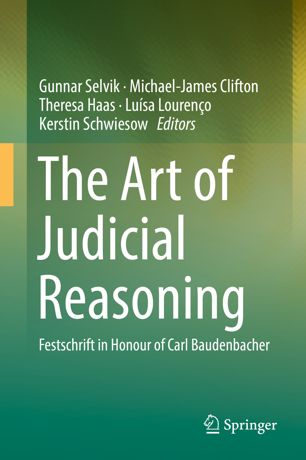

Most ebook files are in PDF format, so you can easily read them using various software such as Foxit Reader or directly on the Google Chrome browser.
Some ebook files are released by publishers in other formats such as .awz, .mobi, .epub, .fb2, etc. You may need to install specific software to read these formats on mobile/PC, such as Calibre.
Please read the tutorial at this link: https://ebookbell.com/faq
We offer FREE conversion to the popular formats you request; however, this may take some time. Therefore, right after payment, please email us, and we will try to provide the service as quickly as possible.
For some exceptional file formats or broken links (if any), please refrain from opening any disputes. Instead, email us first, and we will try to assist within a maximum of 6 hours.
EbookBell Team

4.0
16 reviewsThis book, formed as a series of essays in honour of Professor Carl Baudenbacher, addresses the very art of judicial reasoning, and features contributions from many of the foremost current or former national, supranational, or international judges.
This unique volume is intended first and foremost for legal scholars, but its approachable style makes it readily accessible for students and for those with a general interest in the application of the law and justice in today’s multi-layered world. The collection of essays is rather more philosophical and reflective as opposed to doctrinal. Each contribution focuses on the nature and operation of justice, the independence of the judiciary, and on judicial style primarily from the perspective of the judges themselves. The book provides perspectives on what it means to be accountable and independent as a judge, the role of language and languages in the quest for justice, while other contributions acquaint readers with the some of the structures of courts themselves, or indeed question for whom judgments are written.
Each chapter has been written by a presiding judge, or head of an institution and the book is divided into three parts:
- Part I Art and Method
- Part II Justice and the Judiciary
- Part III Reasoning and Language(s)